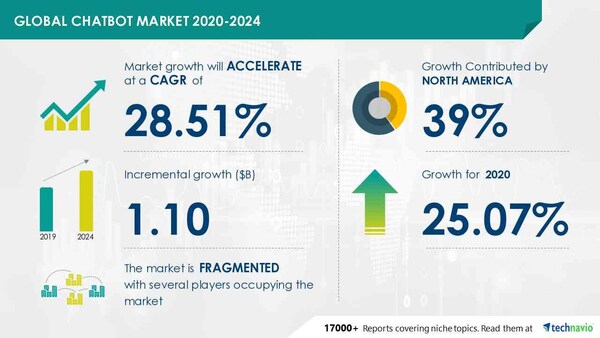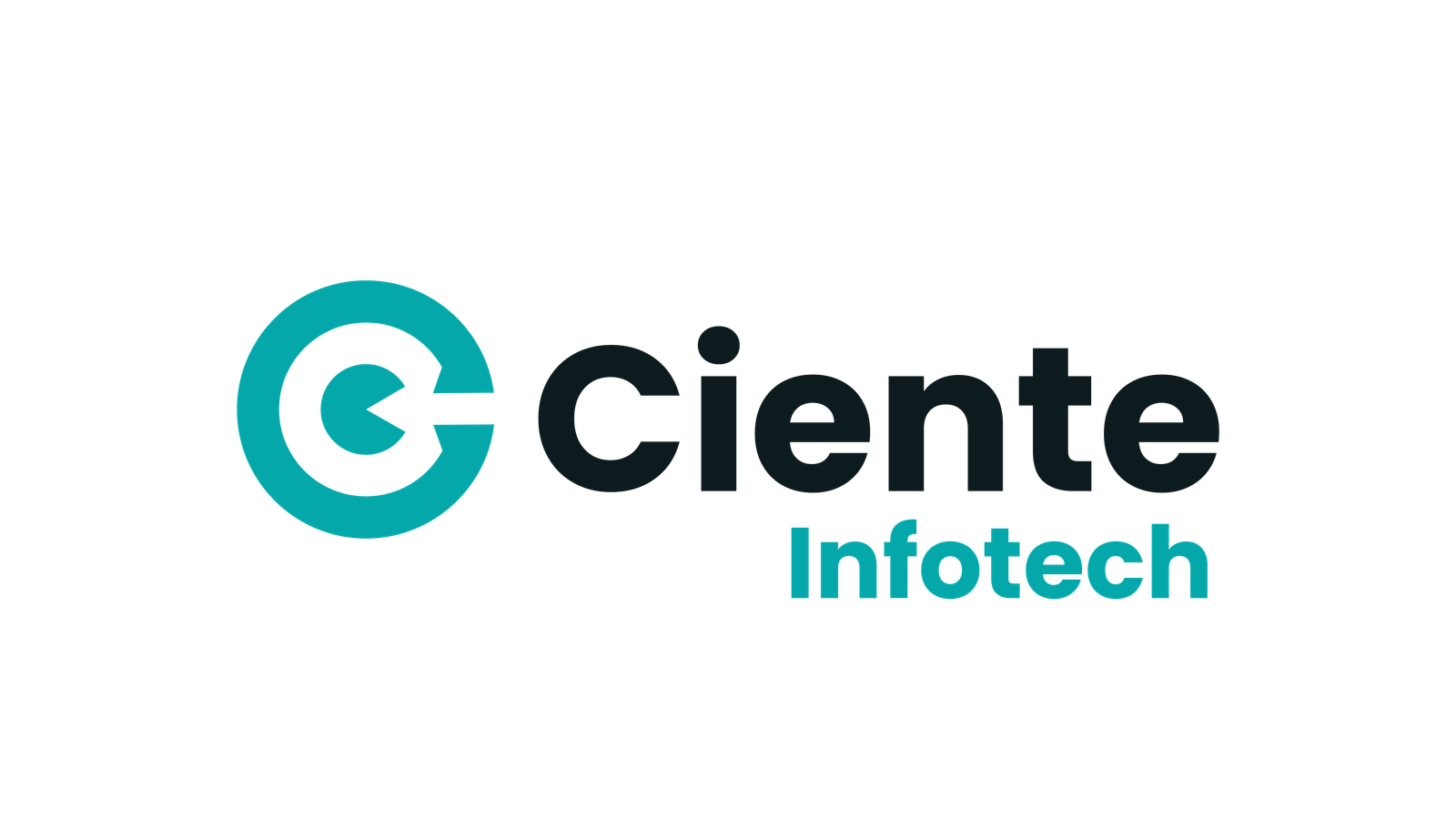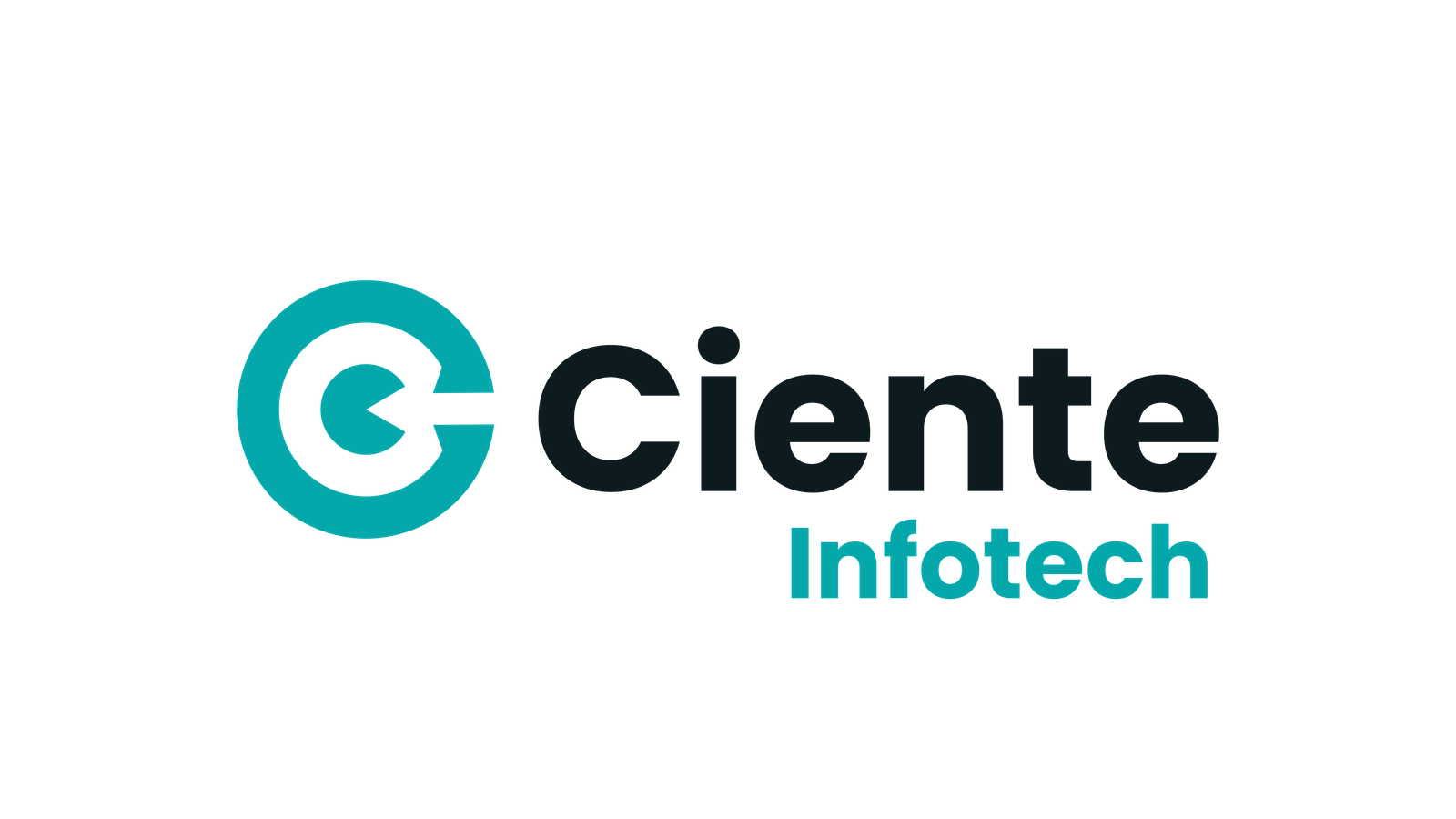NEWS PROVIDED BYTechnavio
May 10, 2024, 04:39 ET
NEW YORK, May 10, 2024 /PRNewswire/ — The global chatbot market size is estimated to grow by USD 3193.3 million from 2023-2027, according to Technavio. The market is estimated to grow at a CAGR of 29.59% during the forecast period.
For more insights on the forecast market size and historical data (2017 – 2021) – Buy Report

| Report Coverage | Details |
| Base year | 2022 |
| Historic period | 2017 – 2021 |
| Forecast period | 2023-2027 |
| Growth momentum & CAGR | Accelerate at a CAGR of 29.59% |
| Market growth 2023-2027 | USD 3193.3 million |
| Market structure | Fragmented |
| YoY growth 2022-2023 (%) | 26.49 |
| Regional analysis | North America, APAC, Europe, South America, and Middle East and Africa |
| Performing market contribution | North America at 37% |
| Key countries | US, China, Japan, UK, and Germany |
| Key companies profiled | 247.ai Inc., Acuvate, Aivo, Alphabet Inc., Amazon.com Inc., Artificial Solutions International AB, Avaamo Inc., Botsify, Creative Virtual Ltd., eGain Corp., Inbenta Holdings Inc., International Business Machines Corp., Kore.ai Inc., Microsoft Corp., Oracle Corp., ServiceNow Inc., Zoom Video Communications Inc., Conversica Inc., Meta Platforms Inc., and OpenAI L.L.C. |
Market Driver
Chatbots have become an integral part of omnichannel communication, connecting users with businesses through various platforms. Microsoft Bot Connector, for instance, links bots with channels like Skype, email, and more. The digital age has significantly transformed interactions, with Meta’s messaging apps (Messenger and WhatsApp) sending 60 billion messages daily. Banking notifications from Bank of America and food orders from Burger King are just a few examples of how users engage with businesses via Facebook Messenger bot apps. The chatbot industry thrives on keywords such as online shopping, product selections, comments, recommendation algorithms, nearby stores, opening hours, contact information, upcoming products, Instacart, OpenAI’s ChatGPT technology, AI language tools, conversational experiences, messaging channels, messaging services, social networking sites, and APIs. Self-learning chatbots, powered by Generative models, Natural Language Processing (NLP), GPT-4, and AI advancements, offer personalized customer intent solutions. Audio/voice bots and IT and ITeS sectors also leverage chatbot technology, making it an essential tool for businesses.
Market Challenges
- The chatbot market faces challenges including low awareness in developing countries, lack of standardization, and concerns over security and privacy. Telecom, healthcare, and financial organizations, among others, utilize chatbots for customer service, AI technology, and natural language processing. Key players include messaging facilities, standalone and website chatbots, voice recognition, and chatbot developers. Messenger applications like WhatsApp, WeChat, and Facebook Messenger are popular platforms. Chatbots handle customer queries, provide instant service, and offer actionable insights, enhancing user experience and customer satisfaction. However, the market growth is hindered by concerns over data security and working hour limitations for customer service employees.
Research report provides comprehensive data on impact of trend, driver and challenges – Request a sample report!
Segment Overview
This chatbot market report extensively covers market segmentation by
- End-user
- 1.1 Retail
- 1.2 BFSI
- 1.3 Government
- 1.4 Travel and hospitality
- 1.5 Others
- Product
- 2.1 Solutions
- 2.2 Services
- Geography
- 3.1 North America
- 3.2 APAC
- 3.3 Europe
- 3.4 South America
- 3.5 Middle East and Africa
1.1 Retail- The chatbot market is experiencing significant growth in various sectors, including telecom, healthcare, and financial organizations. Customer service activities are being revolutionized through artificial intelligence technology, with messaging facilities and natural language processing at the forefront. Open AI chatbots and standalone chatbots are being integrated into websites and messenger applications to provide instant service and actionable insights for consumers.
Telecom companies are utilizing chatbots to handle customer queries efficiently, reducing the workload on customer service employees during peak hours. In healthcare, chatbots are used for patient consultations and appointment scheduling, providing 24/7 assistance and improving user experience. Grocery outlets are also adopting chatbots to enhance customer experience, enabling users to place orders and receive mobile alerts for updates and in-store purchases.
Voice recognition technology is being used to create a more personalized and seamless interaction between users and chatbots. Chatbot developers are continuously improving AI and NLP software applications to provide prompt relevant answers to user intents, meeting market requirements and delivering correct information to enterprises and leads. Messaging applications like WhatsApp, WeChat, and Facebook Messenger are becoming essential chatbot interfaces, enabling businesses to engage with their customers effectively and efficiently. In conclusion, chatbots are transforming customer experience touchpoints across various industries, providing instant service, actionable insights, and a more personalized user experience. User intent is being promptly addressed, and enterprises are benefiting from the ability to provide correct information and leads to their customers, even outside of working hours. For more information on market segmentation with geographical analysis including forecast (2023-2027) and historic data (2017-2021) – Download a Sample Report
Research Analysis
The Chatbot Market is experiencing significant growth due to advancements in Artificial Intelligence technology, particularly in the realm of Generative Models and Natural Language Processing. OpenAI’s GPT-4 is leading the way with its self-learning capabilities, enabling chatbots to provide prompt relevant answers to user intents. These AI-powered chatbots are revolutionizing customer service activities in various industries, including financial organizations and grocery outlets. Messaging facilities equipped with NLP software applications are becoming the new customer experience touchpoints, allowing for consumer analytics and enhancing user experience. OpenAI’s chatbot interface is setting new standards for virtual assistants, providing a more human-like interaction and understanding user prompts to deliver accurate and relevant responses. APIs are making it easier for businesses to integrate these advanced chatbots into their systems, further expanding their reach and utility. Self-learning chatbots are the future of customer service, offering a more efficient and effective solution for businesses and consumers alike.
Market Research Overview
In the dynamic and evolving landscape of technology, chatbots have emerged as a prominent solution for businesses seeking to enhance customer engagement and streamline operations. The Chatbot Market is characterized by a diverse range of applications, from customer service and support to marketing and sales. These intelligent agents employ Natural Language Processing (NLP) and Machine Learning (ML) technologies to understand and respond to user queries, providing a personalized and efficient experience. The market is further propelled by the increasing adoption of messaging apps and social media platforms, which serve as the primary channels for chatbot deployment. The Chatbot Market is expected to grow significantly in the coming years, driven by the continuous advancements in AI and the increasing demand for 24/7 customer support.
Table of Contents:
1 Executive Summary
2 Market Landscape
3 Market Sizing
4 Historic Market Size
5 Five Forces Analysis
6 Market Segmentation
- End-user
- Retail
- BFSI
- Government
- Travel And Hospitality
- Others
- Product
- Solutions
- Services
- Geography
- North America
- APAC
- Europe
- South America
- Middle East And Africa
7 Customer Landscape
8 Geographic Landscape
9 Drivers, Challenges, and Trends
10 Company Landscape
11 Company Analysis
12 Appendix
About Technavio
Technavio is a leading global technology research and advisory company. Their research and analysis focuses on emerging market trends and provides actionable insights to help businesses identify market opportunities and develop effective strategies to optimize their market positions.
With over 500 specialized analysts, Technavio’s report library consists of more than 17,000 reports and counting, covering 800 technologies, spanning across 50 countries. Their client base consists of enterprises of all sizes, including more than 100 Fortune 500 companies. This growing client base relies on Technavio’s comprehensive coverage, extensive research, and actionable market insights to identify opportunities in existing and potential markets and assess their competitive positions within changing market scenarios.
Contacts
Technavio Research
Jesse Maida
Media & Marketing Executive
US: +1 844 364 1100
UK: +44 203 893 3200
Email: media@technavio.com
Website: www.technavio.com/
SOURCE Technavio




